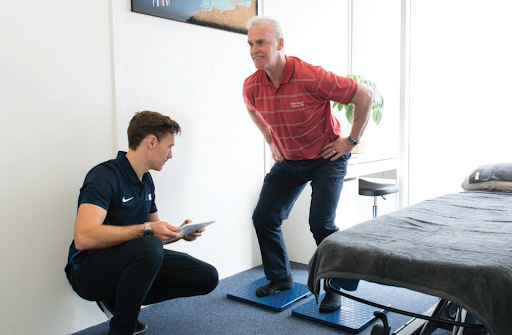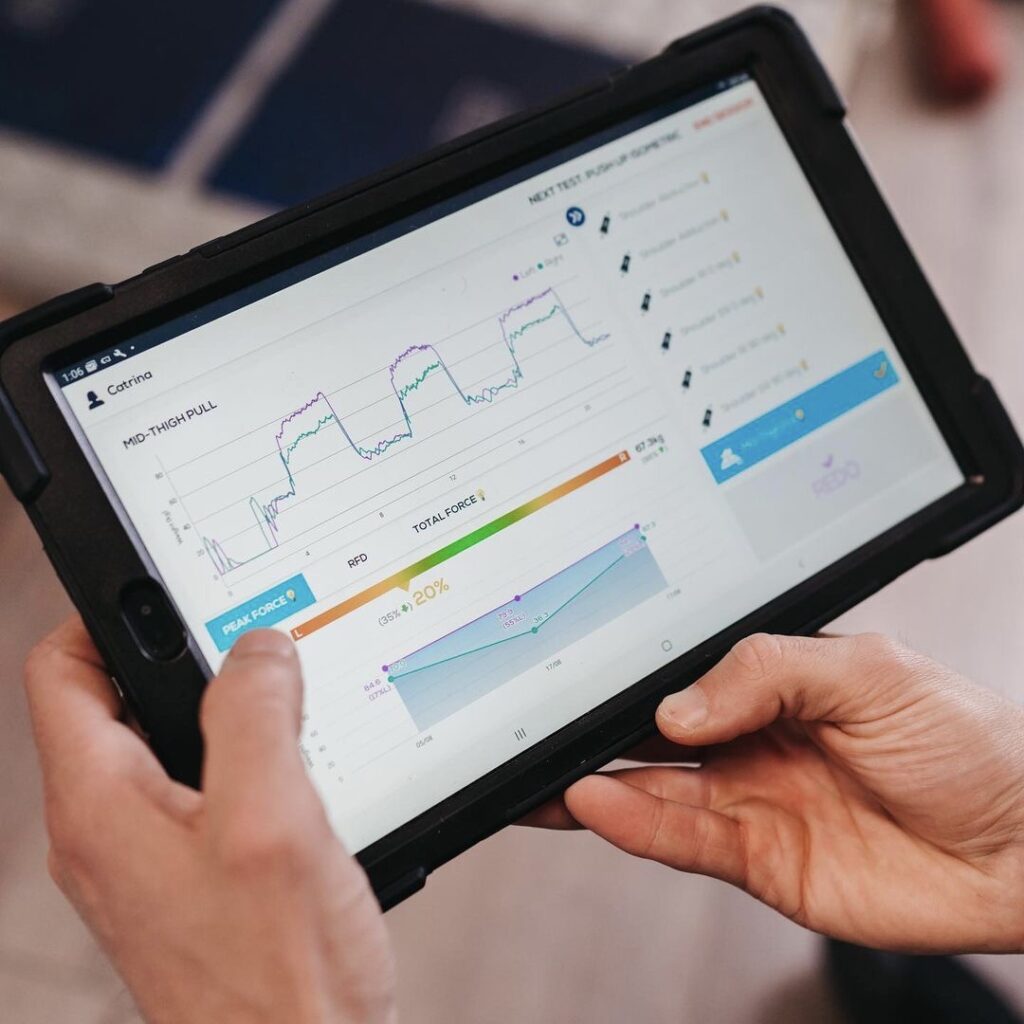In private musculoskeletal (MSK) clinics, the challenge isn’t just delivering results: it’s retaining clients long enough to get them. Many practitioners know the frustration: a client improves slightly, and suddenly, they disappear before the real work begins. This cycle can be frustrating to watch as it undermines your business’s reputation and leaves revenue on the table.
But what if you could break the pattern?
With data-driven tools like the AxIT system, health and fitness professionals can shift from subjective reassurance to objective clarity. This helps you prove progress, build trust, and keep clients engaged from first visit to full recovery.
The Problem: Meaningful Change In A Fast-Paced, Instant-Gratification World
Clients today want their results yesterday. Influenced by the speed of social media and modern life, many expect care to work like a trending lifehack: fast, simple, and cheap. Unfortunately, true results rarely work that way.
The typical care cycle looks like this:
- Session 1-2: Main issue presents. Clients are motivated.
- Session 3-4: Client feels better.
- Session 4-5: They assume they’re “fixed.” Engagement drops. No-shows increase.
- Re-occurence or plateau follows
The result is frustrated clients, lost trust, and practitioners wondering what went wrong.
The Hidden Cost of Drop-Offs
Every missed appointment or premature discharge comes at a cost:
- Financial loss: Missed sessions reduce revenue. In businesses with multiple staff, two no-shows per practitioner per day can add up to over $150,000 annually.
- Risk: Returning to activity without adequate capacity leads to re-occurence.
- Reputation damage: It can seem like the health and fitness professional discharged too early, even when they didn’t.
The Solution: Objective Assessment with AxIT
The AxIT system integrates force plates and handheld dynamometers (Push-IT, Pull-IT, Stomp-IT) to provide real-time, actionable data on:
- Peak force output
- Rate of force development
- Balance
- Force absorption
- Movement patterns and control
By testing patients objectively at baseline and throughout their care plan, you create a clear narrative: “Here’s where you started, here’s where you are, and here’s where we need to go.”

Key Benefits of a Data-Driven Approach
1. Validates Progress
Instead of relying on how someone feels, show measurable gains in strength, balance, and function.
2. Keeps Clients Accountable
When Clients know they’ll be tested, adherence improves. You can also flag non-compliance early.
3. Sets Clear Expectations
Replacing vague timelines with objective milestones ensures Clients understand that feeling better isn’t the same as being ready.
4. Improves Communication
Sharing data reports visually engages Clients and helps them understand their rehab roadmap.
How to Integrate Testing Without Overwhelming Staff & Clients
Start simple:
1. Baseline Testing on Day 1: A short suite of strength, balance, and movement tests.
2. Mini Re-Tests Every 2-3 Sessions: To show change and maintain momentum.
3. Use Pre-Built AxIT Protocols: Reduce admin load and ensure consistency.
Businesses report that just adding 5-10 minutes of objective assessment per session dramatically improves client retention and motivation.

Final Thoughts
Force plate and dynamometer technology like AxIT doesn’t replace your expertise: it enhances it. In a world where clients are easily distracted and results-driven, data becomes your most powerful tool. It provides proof, precision, and persuasion.
By shifting from “trust me” to “see this,” you not only reduce drop-offs but elevate the value of your care.
Ready to break the cycle?
Book a demo of the AxIT system today and learn how objective assessment can transform your clients outcomes and your business.

